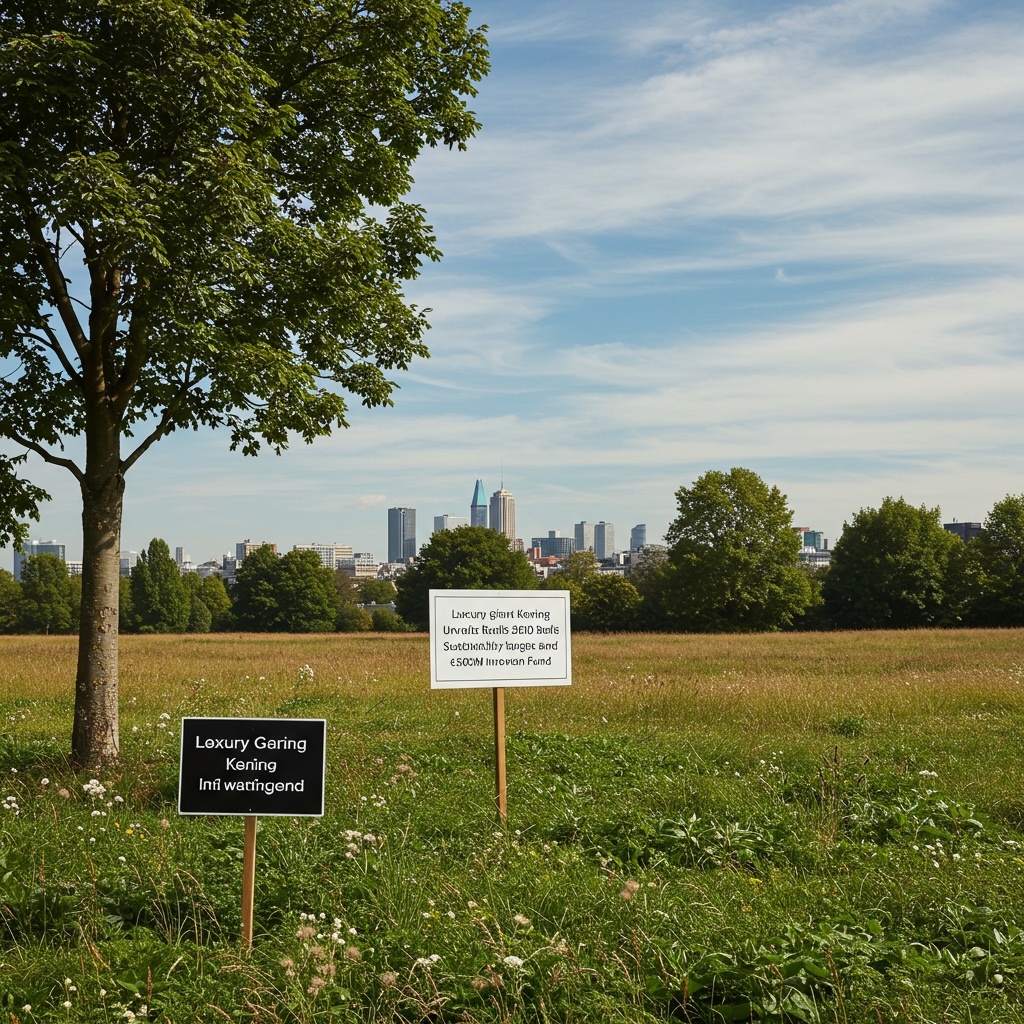Kering Commits to Ambitious Sustainability Goals and Significant Investment
Paris, France – June 7, 2025 – Kering Group, one of the world’s leading luxury conglomerates, today announced a comprehensive and ambitious new sustainability strategy, underscored by significant investment, signaling a heightened commitment to environmental responsibility and ethical practices within its global operations. The announcement, made public on June 7, 2025, details aggressive new targets for reducing environmental impact and fostering innovation across its portfolio of renowned brands, which includes iconic houses such as Gucci, Saint Laurent, Bottega Veneta, Balenciaga, and Alexander McQueen.
Spearheading this initiative is Kering Chairman and CEO, Francois-Henri Pinault, who has consistently positioned sustainability as a core pillar of the group’s long-term vision. This latest strategic pivot represents an acceleration of previous commitments and is a clear response to the escalating urgency of climate action and the growing demand from consumers and stakeholders for greater transparency and accountability in the luxury supply chain. The strategy outlines concrete objectives designed to drive systemic change within Kering’s extensive value chain, from raw material sourcing to product end-of-life.
Bold Environmental Targets Set for 2030 and Beyond
A cornerstone of Kering’s new strategy is a formidable target for absolute carbon emission reduction. The group has pledged to cut its absolute greenhouse gas emissions by a significant 50% by the year 2030. This target is measured against a 2015 baseline, providing a clear benchmark for measuring progress over the fifteen-year period. This commitment encompasses emissions generated across Kering’s entire value chain, including Scope 1 (direct emissions), Scope 2 (indirect emissions from purchased energy), and crucially, Scope 3 (all other indirect emissions, which typically constitute the vast majority of a luxury company’s footprint, covering raw material production, manufacturing, transport, and product use and end-of-life). Addressing Scope 3 emissions is particularly challenging and underscores the depth of Kering’s commitment to influencing practices far beyond its direct operational control.
In addition to climate action, the new strategy places a strong emphasis on supply chain transparency and integrity. Kering has set an ambitious goal to achieve 100% material traceability for key raw materials by 2028. This target initially focuses on critical materials widely used across its luxury brands, such as leather, precious metals, and fibers. Achieving full traceability requires intricate mapping and verification processes extending deep into the supply chain, often involving multiple tiers of suppliers. This initiative aims to provide assurance regarding the origins and environmental and social impacts associated with the materials used in Kering’s products, responding to increasing consumer and regulatory pressure for supply chain visibility. By 2028, consumers of brands like Gucci and Saint Laurent are expected to have unprecedented visibility into the provenance of the materials comprising their luxury goods.
€500 Million Fund Dedicated to Innovation
Recognizing that achieving these ambitious targets requires significant technological advancement and new operational models, Kering is backing its strategy with substantial financial investment. The group announced the creation of a dedicated innovation fund, committing €500 million over the next five years. This fund is specifically earmarked to accelerate research and development in areas critical to sustainable transformation within the luxury sector. Key focus areas for the fund include circularity, material science, and regenerative agriculture.
The investment in circularity initiatives aims to develop and scale up practices such as textile recycling technologies, repair services, and innovative business models that keep products and materials in use for longer. In material science, the fund will support the development and adoption of next-generation sustainable materials, including bio-based alternatives, recycled fibers, and materials with lower environmental footprints compared to traditional options. Investment in regenerative agriculture will focus on promoting farming practices that improve soil health, enhance biodiversity, and sequester carbon, particularly for raw materials like cotton and leather.
This €500 million commitment over the next five years represents a strategic allocation of capital designed to overcome existing barriers to sustainable production and consumption in the luxury industry. It underscores Kering’s belief that innovation is not just a tool for achieving sustainability goals but also a driver of future competitiveness and value creation. The fund will likely support internal R&D efforts, external partnerships, and investments in promising start-ups and technologies aligned with Kering’s strategic priorities.
Context within the Luxury Sector
Kering’s announcement arrives at a time of increasing momentum and competition within the luxury sector regarding sustainability. Peer companies are also setting ambitious targets and launching initiatives focused on reducing environmental impact, enhancing traceability, and exploring circular business models. This escalating focus reflects a confluence of factors: growing consumer awareness and demand, particularly among younger demographics; increasing scrutiny from regulators and NGOs; and the recognition by luxury houses that sustainability is becoming a critical factor for brand reputation, resilience, and long-term viability.
Francois-Henri Pinault‘s emphasis on innovation and investment highlights a strategic approach that views sustainability not merely as a compliance issue but as a key driver of transformation and future growth. The scale of the €500 million fund signals a serious intent to lead in developing the solutions required for a truly sustainable luxury industry. By setting clear, time-bound targets like the 50% carbon reduction by 2030 and 100% traceability by 2028 for core brands like Gucci and Saint Laurent, Kering is attempting to provide transparency and accountability regarding its progress.
The strategic announcement on June 7, 2025, positions Kering as a significant player pushing the boundaries of sustainability within the luxury landscape. The success of this ambitious plan will depend on effective implementation, collaboration across the value chain, and the ability of the innovation fund to drive meaningful technological and systemic change. Nevertheless, the commitment signals a clear direction for the group and raises the bar for sustainable practices within the global luxury market.





